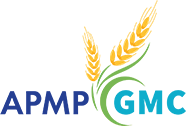By Heather Finch, CF APMP
Dear GMC,
I recently lost my job and am back out on the ol’ job market. One proposal manager position I applied for required a writing sample. I’ve never really been sure what to do in this position. Do I hand over a proposal I worked on, even if a lot of it wasn’t new content that I personally wrote? Can I even provide something I worked on for another company? Is this all just a test? Please help!
Sincerely,
Looking for a Right(ing) Sample
Dear Looking,
First and foremost, I am sorry to hear about your job loss. That can be disruptive and challenging even in the best of times, and even more so when so many things are up in the air with our country and the economy. Give yourself a pat on the back for jumping in there and using APMP resources to help get you back into the wonderful world of managing proposals!
The question of the writing sample for proposal professionals is certainly a tricky one, though unlikely some kind of test to see how you react. Most likely, the hiring manager is hoping to get a sense of what type of proposals you’ve worked on, confirm you have persuasive writing skills, or maybe was an ill-advised strategy from the recruiting area that might not know that much about the industry. With those potential objectives in mind, there are a few strategies you can use if you come across this request.
If you left your last job in good standing, reach out to your former manager and ask about your employer’s policies around releasing work you did while in their employ. If it is allowed, think about some stellar work you have done such as a cover letter or executive summary. Plan to redact out any information that might be considered private or confidential. This will vary by company and industry, but some information to consider would be references, program stats, proprietary processes, and names of staff. If you aren’t sure whether or not you should provide work you did for another company, err on the side of caution and do not include.
Also think about other writing you have done. For example, if you helped out the marketing department in writing some content, this may be a good sample because generally marketing materials are more public facing than proposal documents. Or, if you have written any articles, these could be good samples to include. Don’t have any articles published? Raise your hand to contribute to the GMC Blog. You’ll get your name out there, get a fresh new writing sample, and demonstrate your expertise in proposal management. Not only do these types of samples showcase your writing, they show that you went above and beyond your regular job duties.
Finally, you might think about getting a little creative with your sample. You could write a proposal for why that company should hire you. Or, you could create an annotated sample proposal that walks through the type of work you did or special contributions you made. Did you create a template to use for kickoff calls? Those types of documents can be good samples as well.
Of course, the approach that you take is going to depend on a variety of factors that only you can fully assess. Whatever route you take, it can be helpful to use your cover letter to include what samples you provided and why. Focus on quality over quantity. If you have additional samples you could provide, indicate this in the cover letter as well. If you choose not to provide samples at the application stage, indicate this in the cover letter and let the hiring manager know what clarification you may need before providing. And it probably goes without saying, but maintaining a portfolio moving forward will be invaluable to handling future requests for writing samples.
Searching for a job can be tough, but you got this. Hopefully, this gives you an idea or two you can use to help find a good writing sample to use. All of us here at APMP GMC are cheering for you!
Do you have a proposal-related question? Use the anonymous form here to submit your question and receive a little advice.
Just a little disclaimer: The advice offered in this column is intended for informational purposes only. Use of this column not intended to replace or substitute for any professional, financial, medical, legal, or other professional advice. This column, its author, and APMP GMC are not responsible for the outcome or results of following any advice in any given situation. You, and only you, are completely responsible for your actions.
Heather first encountered the acronym “RFP” when seeking ways to diversify funding sources for a human services company in 2012 and hasn’t looked back since. Since then, she’s moved on to lead proposal teams in both the commercial and government sectors, refining processes and developing efficiencies along the way.
